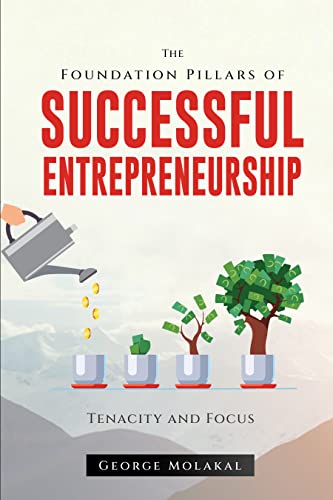The coronavirus pandemic has made investors raise questions on the revenue and business models of startups. It forces us to wonder if a venture is fundable and has fundability or not.
You may be beginning to hear the word fundability a lot as a business owner. It may come from lenders, various media platforms, or your current creditors.
What is fundability? Fundability, in its simplest terms, is the ability of your business to get funding.
When we talk about fundable ideas, we mean ideas that have a strong potential to appeal to an investor enough to obtain funding successfully. Many different factors affect whether a particular startup gets funded. But they all start with the idea: whether this project has the possibility of getting funded or not.
Uber was started as a taxi replacement. But it has become a personal car replacement. That is why it is worth a hundred billion. Facebook debunked the myth that social media did not have reach. There were search engines before Google. But how much it would be monetized was unclear. Google did create a market.
This article will give you a comprehensive look into fundability. It will guide you through the main factors that make a firm fundable. Further, we will show you how ALCOR is at the forefront of ensuring funding for startups.
The Key Factors For Fundability
A business is not VC fundable if you cannot paint a picture of a vast market. There are different concepts tied to this.
-
The concept TAM
This is the target addressable market or total available market. However, people want to look at it.
-
The concept of a SAM
SAM is a serviceable addressable market. You need to define if your business is addressing a small or a large market. You need to explain to your VC why it will just capture or create a new market or capture share with people.
It is ultimately capturing something – either it has to create new spending, new behavior, or capture from someone. It has to clearly explain that if their market is not an obvious one.
People still fall into the trap where they think they have a vast market. But they get multiple rejections when they go to a VC. VCs think is that there is a target addressable market for you. But then there is a serviceable addressable market.
For example, a business targeting India may have a hundred cities as part of its target market. But a lot of those pin codes are not going to be serviceable for whatever reason. Therefore, only eight cities are serviceable, and hence that is the serviceable addressable market.
It is the Minimum Viable Slice of that good market. It goes hand in hand with Minimum Viable Products.
You have to think about the time a VC is putting in money. Is there going to be enough of a viable slice where you can prove your business? If you need to be in those eight cities for it to be proven, it is over.
This is why VCs will often say you can prove it in some minimal form. Start thinking a lot more about the minimum viable slice of the market, which can help prove a model.
The founder should think about — how they can prove their model through MVS, assuming that they want to be VC-funded and are working towards a vast market.
How to Find Out Whether You Are Fundable or Not
-
Are you solving a real problem?
When launching a startup, keep in mind that your company has to offer a real value to the world, or at least a part of it, before seeking funding. Here are some questions for you to consider to ensure fundability:
- What problem are you trying to solve?
- Is it a perceived or a real problem?
- Have potential customers confirmed you are solving a real problem?
- What is the market size of the problem?
-
Do you have a killer team?
Great minds think alike. So, building your startup team is extremely important. Investors look for teams of individuals with a combination of technical background, business skills, and industry experience-driven to succeed.
Joining a startup is a great way to gain experience. Contribute to the success of a fledgling business. I have previously employed future entrepreneurs who have added immense value to our businesses. At the same time, they have understood the frenetic pace of an early-stage business and developed skills from financial modeling to phone sales to graphic design.
-
Are you gaining traction?
Investors will not be interested in a startup with little to no traction. Establish a solid customer base and gaining traction over time. This will help investors know if your startup is viable. Below are several questions that must be addressed:
Do you have users or customers?
Is the rate of user growth increasing?
Have you been able to charge users for the service?
Investors want to see traction to know if your startup is viable. Traction proves that there is a demand for your service
-
Why now?
Timing is everything in startups – if you cannot materially move the needle and achieve escape velocity, the company will stall, and others can catch up.
It is critical to time the market right – and the more you can convince yourself and investors that the time is right.
In 2 years, it will be too late and two years ago was too early, the better your chances of being back. It could be as simple as “SmartPhones have hit critical mass.”
Investors are in the business of risk capital. However, there needs to be a sense that the time is right for this solution.
-
Who is and who is not a user?
It is incredible to see how often entrepreneurs miss out on one critical piece – identifying their real customers. But they know full well who is not their customer.
As counter-intuitive as it sounds, being transparent and turning down a business that may seem like an adjacency is critical for a startup’s success.
-
Competition
Mature markets can be a plus. This is because other entrants have defined the path to success. Heavy or well-funded competition is harmful. The competitive landscape affects the likelihood of success and is typically weighted heavily by investors.
-
Realistic Valuation and Expectations Regarding Fundability
Valuation should be supported by the stage of development and financial projections. Expectations of Investors’ rights also have to be aligned to attract investment. An investor will value the firm based upon all five of the above components.
Many early-stage firms with innovative technology or a great business concept never achieve funding. This is because they fail to achieve “critical mass.”
“Critical mass” is about hitting the exact balance of the above factors. This achieves an investment “reaction.”
Entrepreneurs often use the cash available to their business from their savings and friends /family to build prototypes. But they might have been better off paying an attorney to protect their product design. A complete patent has greater value than an incomplete prototype.
-
Entrepreneur Credibility is important for fundability
The client should have a track record of success, credible experts in their field, ability to present/articulate their business model.
The major components that determine if your firm is fundable are:
- Business Credit Bureau Scores
• Assets
• Business revenue (Income)
• The owner’s credit history
Key Reasons to Make Your Business Fundable Today
-
Running a business is a mysterious journey.
We build a business as an asset. However, not every business is an asset until it is fundable. It is always better to be prepared and build a fundable business to unlock its real value when we want the most.
-
Not every profitable business is fundable.
It is widely but falsely believed that mere just being profitable makes your business worthy enough to bet on.
Yes, profitability is significant and speaks volumes of the business’s credibility. However, it is nowhere suffices for an external investor to write a hefty cheque for you.
An investor looks for fundability more than profit, which comes from various other factors like Team, Idea, Execution, and Proof of Concept.
-
Every Business is fundable. But every Business Model is not.
We often go into the market, looking for funds to get us out of the crisis we put ourselves in. That is one of the biggest deal-breakers for investors. No investors like a helpless business.
Investors do not owe you any relief. They are there to make money. Business waiting for the doom is not considered investable
Elements of a Fundable Foundation
You cannot follow rule number one if you do not know the elements of a fundable foundation. Take a close look at your business and make sure you are all set in this department.
-
Separate Contact Information
The first step in setting up a fundable foundation is to make sure your business has its phone number, fax number, and address. Some are surprised to find out that does not mean you have to get a separate phone line or even a separate location. You can still run the firm from your home. There is not even a need for a fax machine.
You can quickly get a business phone number and fax number that works over the internet instead of phone lines. The number will forward to any phone you want it to. That means you can just use your cell phone or landline.
Faxes can be sent to an online fax service if anyone does fax you. It lends to the legitimacy of your business.
A virtual office can be used for a business address. How do you get a virtual office? It is not what you may think.
Some businesses offer a physical address for a fee, and sometimes they even offer mail service and live receptionist services. Some of them also offer meeting spaces for times you may need to meet a client or customer in person.
-
EIN
Next, you have to get an EIN. This is an identifying number for your business. It is similar to your SSN. Some owners use their SSN for business transactions. This is what a lot of partnerships and sole proprietorships do.
However, it does not look professional. Also, it can cause your business and personal credit to get all mixed up. You need to apply for and use an EIN when you are looking to increase fundability. Get one for free from the IRS.
-
Incorporate
Incorporating the firm as a corporation, S-corp, or LLC is necessary for a fundable foundation. It helps solidify your business as legitimate and offers separation from the owner for building business credit. It also offers some protection from liability.
For fundability, your choice does not matter as much as it does for budget or liability protection. The best thing to do is to talk to your attorney or a tax professional. Your time in business starts over when you incorporate. You will also lose any positive payment history.
This is why you have to incorporate it as soon as possible. It is necessary for fundability and for building business credit. You appear more fundable the longer you have been in business. That starts on the date of incorporation, regardless of when you started doing business.
-
Business Bank Account
You have to open a separate business bank account. There are a few reasons for this. First, it helps you keep track of business finances. It will also help you keep them separate from personal finances. This is important for tax purposes.
Also, there are several types of funding you cannot get without a business bank account. Many business credit cards and lenders want to see a minimum average balance in a business bank account. Also, you cannot get a merchant account without a business account at a bank.
As a result, you cannot take credit card payments without a separate business bank account. Studies show that consumers often spend more when they can pay by credit card.
-
Licenses
For a business to be legitimate, it must have all of the necessary licenses it needs to run. If it doesn’t, red flags are going to fly up all over the place. Do the research you need to do to ensure you have all of the licenses necessary to run your business legitimately at the federal, state, and local levels.
-
Website
Presently, you do not exist without a website. However, having one that is poorly put together can be even worse.
Your website is the first impression you make on many. If it appears unprofessional, it will not bode well for you with consumers or potential lenders.
Spend the time and money necessary to make your website the best it can be. Pay for hosting also. Do not use a free hosting service. The firm needs a dedicated business email address as well. Make sure it has the same URL as your Website.
-
Business Financials
Have an accounting professional prepare regular financial statements. Having an accountant’s name on financial statements helps your business look more credible and legitimate.
Have professional statements prepared annually if you cannot afford this monthly or quarterly. This way, they are readily available during a loan application.
-
Personal Financials
Tax returns of the past three years will be required. Get a tax professional to prepare them. This is the bare minimum you will need. Other information lenders may ask for include bank statements and check stubs, among other things.
-
Personal Credit History
Your credit score from Experian, Equifax, and Transunion all make a difference. You have to have your credit in order because it will affect the fundability of your business. If it is not great right now, get to work on it. The best way to get a strong personal credit score is to make payments on time.
-
Other Business Data Agencies
In addition to the business credit reporting agencies that directly calculate and issue credit reports, other business data agencies indirectly affect those reports. Two examples of this are The Small Business Finance Exchange and LexisNexis.
These agencies gather data from a variety of sources. It includes public records. They could even have access to detailed information. It could be relating to automobile accidents, liens, and other things that could affect fundability.
You may not be able to access the data also. But you can make sure that any new information they receive is positive. Enough positive information can help counteract past negative information.
-
Bureaus
Several other agencies hold information related to your finances that you need to know about. For example, the personal FICO score needs to be as healthy as possible. It really can affect business fundability. Almost all traditional lenders will look at personal credit also.
Also, you have ChexSystems. Simply put, they keep up with lousy check activity. This makes an impact when it comes to your bank score. You will not be able to open a bank account if you had too many bad checks. You could run into fundability problems as a result.
For this point, everything comes into play. Have you ever been convicted of a crime? Do you have a short sell or bankruptcy on your record? What about liens or UCC filings? Everything will play into the fundability of your business.
ALCOR’s Mission to Get You Funded
Our goal with ALCOR’s reports is to see more innovations to receive funding. Around 97% of new ideas and company growth plans are never funded. This is unacceptable, as it is not about money availability; it is really about fear – investor fear. Convert fear into trust. Here is how.
Funding is a little like a marriage.
ALCOR has developed a three-stage process that is highly successful in overcoming investor fear of commitment, i.e., fear of loss, and then getting to funding. Firms are highly successful in obtaining funding if they effectively complete all three stages of our program.
- Stage 1 – Qualify
- Stage 2 – Prepare
- Stage 3 — Access
Think of this as a wedding cake
Qualify is the base. Prepare is the middle level. Access is that sweet top level.
You’ve got to cut through the base and middle. Then you will get a piece of the action. This is a rough analogy. But it serves the purpose.
Does that mean 100% of projects and companies that work with ALCOR get funding?
No. Not every idea is ready for funding. But we promise you will know where you stand and if this cake is for you.
Why Are We Doing the Reports?
Like you, we are doing this because we are tired of the investor community’s arrogance and how you, as innovators, are treated.
We are tired of the jungle of information about how to get funding. Also, we are tired of investors’ excessive amount of fear and how few significant innovations get funding.
We intend to show you the respect that innovators deserve, cut through the jungle of information, and dissolve investor fear, clearing a pathway to fund if it is at all possible. Sound good?
Stage 1: Qualify. Are You Ready for Investment?
Every firm that wants to grow further has the core question, “Am I fundable?”
People are hesitant to ask, but they want to know, bottom line, somebody put in the money needed for my idea or company to succeed and grow.
-
Assessment Report
To help answer that initial question, ALCOR has developed assessment reports. The reports are straightforward and illuminating.
It contains proprietary Scorecards that help you understand and assess the basics of being fundable as it applies to your project or company. The reports include a guide that explains how to do the assessment.
-
Phone Call Review
The second step in this stage is a phone call review in which an ALCOR funding advisor will go through your assessment from an investor’s perspective. You then email back the completed scorecard. Then your call is set up. The call itself is an hour, and your advisor will spend a great deal more time understanding your offer.
- Before the call, he will review your assessment. It will help to gain an understanding of your project.
- During the call, you will discuss the results and your plans in more detail. You will get unfiltered, valuable feedback about fundability.
- After the call, you will receive a report. It will help to recap and next steps as appropriate.
When you complete this stage, you will have a deeper understanding of your project’s fundability and focused next steps. Not everyone will qualify for the next stage.
Stage 2: Prepare to Meet Investors
This stage is a multi-step process that ensures you have the tools, resources, and guidance you need to meet with investors and get funded.
In this stage, we apply the proprietary Readiness assessment. If you achieve the Readiness score, or at the discretion of your advisor, you are eligible for Stage 3.
Stage 3: Access Investors
At this stage, you will have access to investors and investors that are excited to hear about your project or company. You will be armed with the skills, tools, and methods to convert your fear into trust.
How is that possible?
You will be meeting the kind of investors seeking your type of innovation and naturally trust you. This is also because they know you have been thoroughly vetted and are prepared to present them with the right opportunity. It is part of the process of overcoming fear.
The other part of overcoming their fear is your ability to create a trusting relationship with investor types – which you CAN and WILL learn to do.
Remember this: no investor will listen to your ideas and plans, no matter how exciting, until they trust you. You have got to handle the personal trust issue first.
Conclusion
Far too few great ideas are successful in getting the funding they need. There is PLENTY of money looking for high returns. The problem is investor fear – fear of loss and fear of commitment. Your ideas and plans are heard only after you gain trust. There are strategic ways to convert that fear into trust. That trust will then lead to funding.
ALCOR is committed to raising the number of worthwhile innovations that make it through funding to the market from an unacceptable 3% to 50% or higher. Suppose you are one of the 97%, and you have discovered that it is nearly impossible to be heard by investors. In that case, you are reading this article at the perfect time.









